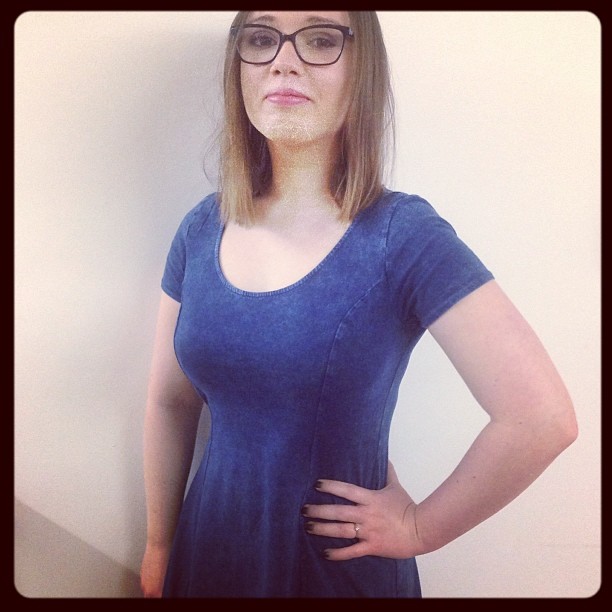Women of the world rejoice! Vogue says we are allowed to have breasts! Yes, you got it, breasts are in this season. What we are supposed to do next season is anyones guess but lets not be ungrateful. A man can have a penis all year but breasts are, y’know, inconvenient. Just ask Fashion Designer Marios Schwab who told Tatler “I’m not a big fan of breasts. They’re a challenging constructional point.” Well, Mario, how about not designing for women then, because you know who don’t have breasts? Men.
Vogue says in this article titled Return of The Bosom: “So if boobs are not yet an out-and-out fashion trend, they are becoming a frequent exception to the rule.” Should someone make fashion know that women’s breasts aren’t detachable? Maybe a post-it note or something? This piece clearly shows that Kate Upton is a feminist icon. Yes, you can model and be a female role model. She was deemed “too obvious” for fashion. Now some fashionistas grind their teeth every time she is featured on the cover of Vogue, as she is this month.
Vogue goes on to say: ‘Men love boobs – that’s a well-documented story we needn’t explore here. But for women, as is true for fashion, the relationship is more complicated. In short, breasts are difficult to dress. During couture week, Jourdan Dunn exclaimed on Twitter, “Ahahahahahahha I just got cancelled from Dior because of my boobs!” But, she reasoned, “I’m normally told I’m cancelled because I’m ‘coloured’ so being cancelled because of my boobs is a minor : )”‘
Wow. Breasts may be difficult to dress, but only because designers are so bad at accommodating them. I mean, what’s next? Hips, arms, thighs? If you can’t make women’s clothes with breasts in mind, you are clearly an untalented idiot. Something Sarah Millican wrote an amazing essay on after being trolled after the BAFTA awards.
In my other life as an actor, my breasts have lead to the most amusing moments in my career. I didn’t develop breasts until I was in my twenties but when they came they didn’t hold back: my size now is 32DD. Which makes costume designers hate you. When I was a UK size 4/6 (I am now a size 8), wardrobe loved me, but when I developed breasts I would stand in the middle of the room while various costume people asked each other, ‘What are we supposed to do with those?’ The answer was usually gaffa tape them down. I am so thankful I am a strong person and that was done to me rather than someone else. I can look at it with amusement, other, emotionally fragile or vulnerable, women could possibly have developed an eating disorder. I have spent a lot of time being dressed up like a boy for parts. I have no idea why. Just hire a fricking boy if that’s what you want.
In fact I am rather sick of fashion expecting women to make their bodies fit the dress, rather than the other way around. Even the thinnest woman has curves, only boys are drawn in a truly straight line. We are not ornaments or hangers. In what other aspect of our lives do we pay money for something that isn’t made to suit us and our lifestyles? Instead we are expected to diet our entire lives just for the joy of wearing clothes designed by people who obviously hate the female form, and don’t even lie about it. Yet, still we punish ourselves.
Of course not all designers are like this. Valentino clearly loves women. As does Roberto Cavalli. Dolce & Gabbana say in the same Vogue article: “We always try to create clothes that enhance a woman’s curves. We like to think that a Dolce & Gabbana girl wants to be very feminine, sensual, strong and fierce of her body.” So let’s take a stance in the only way that really gets things done: with our money. Any designer who hates women’s bodies should not have a penny of a women’s money.
Whilst researching this piece I came across this article Hadley Freeman wrote on this subject. Check it out here and this website, a body gallery of how women really look, was interesting too.
What do you think?

